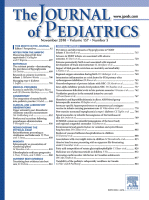
Celiac.com 11/03/2010 - Children who have both type 1 diabetes and celiac disease, and who also delay a gluten-free diet are about as healthy as kids with type 1 diabetes alone, according to a report in the Journal of Pediatrics.
A two year prospective longitudinal review comparing factors including glycemic control, celiac symptoms, or z-scores for weight, body mass index, or height found no significant differences between children who eat a gluten free diet and children who eat to a regular diet.
Celiac.com Sponsor (A12):
About one of every eight children with type 1 diabetes also suffers from celiac disease.
However, this high rate was noted after the development of blood screening for celiac autoimmunity via immunoglobulin A transglutaminase autoantibody (TG); a TG index > 0.05 is considered positive. Currently, doctors don't fully understand the implications of a positive TG index in the absence of symptoms.
Whether or not to screen diabetic kids for celiac disease remains controversial. Numerous pediatric diabetes and gastroenterology associations currently recommend screening diabetic kids for celiac disease, while the National Institutes of Health consensus statement does not recommend such screening.
Dr. Jill H. Simmons, from Vanderbilt Children's Hospital, Nashville, Tennessee, led a team of researchers that examined the natural history of celiac autoimmunity in children with type 1 diabetes, and explored the benefit of an early gluten-free diet.
For the study, the team compared 79 diabetic children with celiac disease antibodies and 56 diabetic children without celiac disease who averaged 10 years old, duration of diabetes (4 years) and gender (56% male).
Of the 79 children with positive TG tests, 36 continued eating a regular diet, while 43 followed a gluten-free diet.
The team was logistically unable to conduct a two-year follow-up on all participants, and ultimately analyzed complete results for 26 gluten-eating kids, and 37 following a gluten-free diet.
Even though the gluten-free diet group showed a higher TG index at the start of the study (0.66 vs. 0.45, p = 0.03), the two groups evened out after 24 months (0.31 vs. 0.35).
The groups had about the same overall HbA1c, with the gluten-free group coming in at 8.1% compared with 8.2% for the regular diet group.
The team found that 16.2% of gluten-free kids experienced episodes of severe hypoglycemia, compared to 8% of the kids who ate gluten, but the difference was not statistically significant.
One year into the study, percentages of patients reporting celiac-associated symptoms, such as diarrhea, abdominal pain, constipation, and abdominal distention were 71% in the gluten-free group, compared with 58% with the gluten-free diet vs. 71%). However, by the two-year mark, these numbers had also evened out. This is interesting, because both groups still report what seem like relatively high rates of celiac-associated symptoms.
One important difference at two-year mark was insulin-like growth factor binding protein 3 z-score (-0.23 vs. -1.16, p = 0.002).
Therefore, the team concludes, this study "did not demonstrate significant adverse outcome in those children who delayed" a gluten-free diet.
Dr. Simmons' group also compared characteristics between TG-positive and -negative children. At baseline, TG-positive subjects had lower z-scores for weight and mid-arm circumference, lower free T4 and insulin/kg values, higher intact parathyroid hormone level, and higher urinary cross-linked N-telopeptides of type 1 collagen (NTX).
After 2 years, the only remaining differences were higher urinary NTX and lower weight and BMI z-scores. TG status had no influence on glycemic control.
Whatever the case, due to the study's small size, and numerous other factors, the question of whether to screen diabetic children for celiac disease, and how soon to start them on a gluten-free diet, remains unanswered.
Also, focus of the study seems a it off the mark. The study does not seem to address the basic complications of celiac disease in general. Rather, it looks at celiac disease purely through the lens of whether or not there are substantial physiological differences in diabetic children with celiac disease who eat gluten-free versus those who do not; or in those who delay the diet versus those who begin immediately.
A better question to examine might be: At what point does the damage from celiac disease begin to occur in children with celiac disease who continue to eat a diet that includes gluten?
We know the damage from untreated celiac disease starts at some point, and is cumulative in its effect. Clearly, at some point a gluten-free diet will be necessary for diabetic children with celiac disease, so what advantage is there to not putting the child on a gluten-free diet as soon as possible?
To their credit, the research team notes that further research is needed to determine the optimal timing of celiac screening in diabetic children, and how soon to begin treatment with a gluten-free diet, weighing cost vs. benefits and effects on quality of life.
However, they don't have much to say about what quality of life issues for untreated celiac disease. The team does not examine any aspect of behavioral changes or improvements that may occur when gluten is eliminated; or other factors. They do not address the fact that celiac disease is an auto-immune disease, or the wisdom of permitting an auto-immune disease that is so easily treated as celiac disease to go untreated while trying to treat diabetes.
I would say take this study with a grain of salt and keep an eye out for more studies that further elucidate the associations between diabetes and celiac disease, and which provide clearer answers to the question of how soon diabetic children with celiac disease should begin a gluten-free diet.
Source:
-
Open Original Shared Link



.thumb.webp.93e34efe50110d914c99263766e02e6b.webp)

.thumb.jpg.7bad51ed6a943bd2a58c19e3dee802d5.jpg)
Recommended Comments
There are no comments to display.